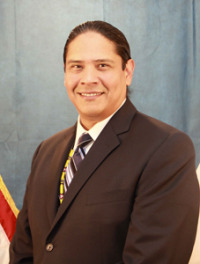
As chairman of the National Indian Gaming Commission—both in an acting capacity for 18 months and since my confirmation in April 2015, I have made protecting against anything that amounts to gamesmanship on the backs of tribes a top priority for the agency.
Simply put, our extraordinary team is focused on doing whatever we can within our authority to work with tribes and relevant partners to defend against any third-party threats to the tribes’ legally protected interests in their gaming operations. We recognize that gaming continues to be a critical economic engine for hundreds of native communities which simply seek to improve the lives and opportunities for their people.
Accordingly, we are solemnly committed to fulfilling our responsibility as regulators to serve as strong partners in protecting tribal assets and preserving the integrity of tribal gaming.
The Indian Gaming Regulatory Act (IGRA) was enacted to support and promote tribal economic development, self-sufficienc, and strong tribal governments through the operation of gaming on Indian lands. IGRA established the NIGC to regulate and support tribal gaming with authority to enforce IGRA to ensure its purposes are achieved. (See 25 U.S.C. § 2704.)
The NIGC is taking a targeted approach based on IGRA’s statutory requirements to ensure that tribes are truly the primary beneficiaries of their gaming enterprises by reducing gamesmanship in the Indian gaming industry and helping tribes develop ways to prevent gamesmanship before it occurs.
Gamesmanship in Indian gaming occurs when a non-tribal government interest manipulates business, professional and employment relationships associated with the Indian gaming operations to further its own interests at the expense of the tribal gaming operation and, therefore, the tribe and its people. Gamesmanship often results in the violation of IGRA, NIGC’s regulations, or the tribe’s gaming ordinance (and often other federal laws) and may include: managing an Indian gaming operation without an approved management contract, misuse of gaming revenue, a violation of the sole proprietary interest requirement, or all three.
Such gamesmanship is even more egregious when the parties engaging in said gamesmanship have undue influence over the tribal decision making process, as can be the case when the gamesmanship is facilitated by trusted tribal advisers.
Gamesmanship may manifest itself as a third-party entity managing a tribal gaming operation without an NIGC-approved management contract. This is often done through schemes offered as legal methods for achieving the same goal as a management agreement with less regulatory oversight.
By managing without an approved contract, third parties are able to avoid the protections that IGRA provides to tribes and tribal operations, through IGRA-required contract terms such as caps on the amount a manager can be paid, guarantee of dollars for the tribe, dispute resolution procedures and backgrounding of managers to ensure no corrupt influences exist. When gamesmanship is employed, one or all of these protections are missing from the arrangement, resulting in the third party entity taking more than the permitted 30-40 percent of revenues and denying the tribe the resources to which it is statutorily entitled.
Gamesmanship may also be employed to allow third parties to gain access to net revenues without management and can lead to the misuse of gaming revenues. Under the guise of providing services not related to the gaming activity (marketing, security, parking, financial), third parties have received unearned compensation, bonuses or premiums, based on percentages of net gaming revenues. In those instances, the parties have found themselves violating IGRA’s limitations on the use of net revenues.
Unapproved management contracts and misuses of net revenue can happen simultaneously or individually, and can be so egregious that they are a violation of the sole proprietary interest requirement of IGRA. Gamesmanship often results in the non-tribal entities acquiring a substantial financial benefit for minimal input, indicating a proprietary interest.
Every approved tribal gaming ordinance must provide that the tribe will have sole proprietary interest and responsibility for the conduct of any gaming activity. Gamesmanship results in parties violating these gaming ordinance provisions and, in turn, IGRA’s requirement.
Gamesmanship is not always identified quickly and, unfortunately, tribes suffer the substantial consequences from gamesmanship. Not only can tribes be deprived of the fruits of their gaming, but may be subject to fines for failing to protect them. In one notable circumstance, the tribe received less than 30 percent of the net revenue from their facility, had a non-tribal entity owning and operating a gaming operation on their property, and was deprived of the ability to develop their own gaming operation.
NIGC is always mindful of the incredible work that tribes, as the primary regulators of Indian gaming, have done in building and protecting the industry, making it the success it is today. To that end, tribal leadership, gaming commissions and tribal employees are best situated to identify gamesmanship. The integrity of the industry is best protected when tribes avoid gamesmanship at the outset, before IGRA, NIGC regulations or tribal gaming ordinances have been violated.
Two ways tribes can prevent the most prevalent forms of gamesmanship is by having strong conflicts-of-interest statutes and ensuring that there is adequate supervision of all gaming operation employees, including management officials.
NIGC is committed and well-positioned to provide tribes and tribal regulators with robust assistance to prevent, and enforce against, gamesmanship and protect tribal assets. Together, the commission and tribes can work to prevent gamesmanship on the backs of tribes and to ensure that native communities are the primary beneficiaries of their gaming revenue.
Indian gaming’s continued economic success is dependent upon our mutual vigilance. Please do not hesitate to contact NIGC if you have concerns about third-party gamesmanship.






